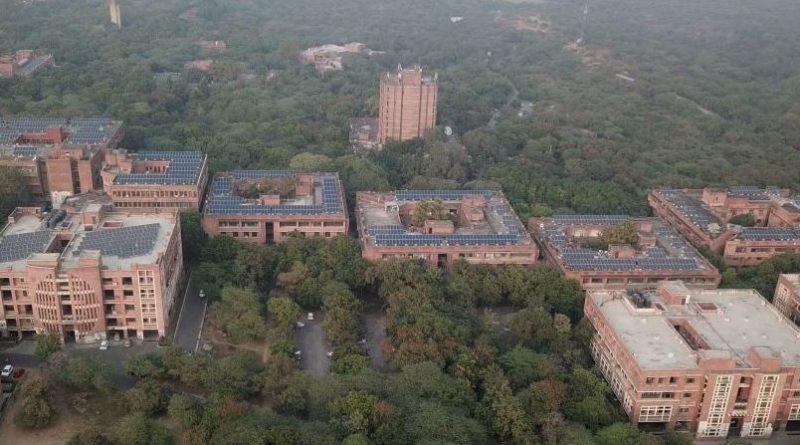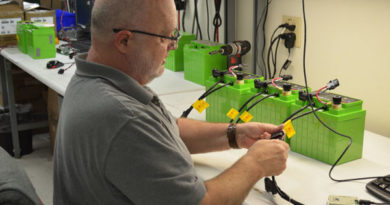IIT Indore goes Solar with 422kW Rooftop Solar System
 Now Solar Powered
Now Solar Powered
Indian Institute of Technology Indore has joined a growing league of ‘green’ colleges, with the installation 422 kW solar system. The institute hopes the new system will provide a significant part of its energy requirements.
The project was commissioned by an integrated services company, BVG India Ltd. and spans over the 4,220 square metre campus. The premier institute expects the solar system to offset its carbon emissions by nearly 500 tons, which is the equivalent of planting 23,000 trees. Based on an average standard value that a 1 kW system generates 5 units of electricity in a day, the system is expected to generate over 700000 units (kWh) per annum or ~1659 kWh/kWp.
Of late a growing number of educational institutions are turning to solar energy as a primary source of electricity as it provides two key benefits, one that under normal conditions it provides a cheaper source of energy and second, it also helps lower the carbon emissions of the organization. Following the trend, a vast number of educational institutions across the country have transitioned to a cost-effective rooftop solar system as a way to build a sustainable future.
Solar schemes introduced by the Solar Energy Corporation of India (SECI) have also stimulated the growing trend of rooftop installments on educational buildings. More recently, Delhi’s Jawaharlal Nehru University inaugurated its 500 kWp solar system under SECI’s 1000 MWp Grid-Connected Rooftop Solar PV System Scheme for Government Buildings. JNU will enjoy solar power at a flat rate of ₹3.39 per unit for 25 years, thereby helping it save over 60% in power costs for the equivalent electricity generated. Under this scheme, the cost of setting up the solar power plant and its maintenance is undertaken by the developer, for which state-wise a pre-decided flat rate is charged for a flat tenure of 25 years.
In August, the historic Khalsa College in Amritsar, in a bid to stay on trend with the latest developments in the country and the energy transition around the globe, inaugurated a 775 kW solar power plant on campus. The move was seen as a bold attempt of keeping up with their reputation as a progressive and forward-looking minority institution, that has always been at the forefront of adopting positive change.







